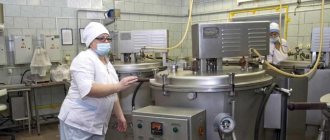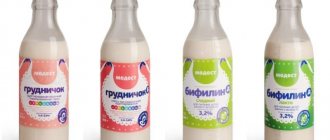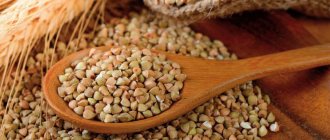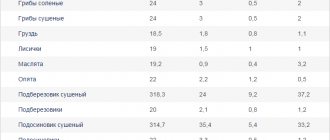According to current legislation, every family in Russia with small children has the right to various benefits and government support. One of its types is to provide citizens with special food products. The list of citizens who have the right to social support, as well as the procedure for its provision in each region, is regulated by a separate regulatory act.
But in this article we will talk about the capital of our country, since it is home to millions of people who regularly face various problems in receiving the required assistance. Let's take a closer look at the age at which dairy cuisine is received in Moscow, and also find out the main nuances regarding this issue.
general information
Despite the fact that government assistance is guaranteed by the state, in practice everything is not so simple. Therefore, before we find out about the age at which dairy food is issued to citizens, let’s first understand the main nuances. As noted above, each region has different rules for issuing food products. Some provide them as part of the pregnancy diet, while others provide them only for children. There are also cases when nursing mothers stop receiving milk altogether if the baby is 3 years old.
This is because dairy regulations are reviewed by the government every year. Edits are made at the local level, which explains the differences in individual regions. Therefore, parents should constantly monitor any changes in the law in order to be aware of their rights and, if possible, take advantage of any possible benefits.
Who can receive free products
So what do you need to know about this? Next, a detailed answer will be given to the question of up to what age milk cuisine is given. In the meantime, let's find out who even has the right to it. According to the law, social support is provided to the following categories of citizens:
- pregnant women who are observed in the antenatal clinic;
- bottle-fed infants under 6 months of age;
- children aged 6 to 36 months;
- large families;
- children with disabilities under 15 years of age.
However, in practice, things are not as rosy as we would like. Representatives of the categories listed above do not always actually receive assistance from the state. In some cities, social benefits are provided exclusively to low-income families. In this case, the question of up to what age dairy food is provided to pregnant and lactating women disappears in itself. After all, if you are wealthy, then local governments will not provide any products.
Legislation
In Moscow, the activities of institutions providing free food are regulated by Government Order No. 292 of 04/06/14.
Who is eligible for the dairy kitchen?
The concept of dairy cuisine as such is not enshrined in modern legislation at the state level.
Special food stations are stipulated by the Federal Law “On the Fundamentals of Protecting the Health of Citizens in the Russian Federation.”
Clause 3 of Article 52 stipulates that provision of adequate nutrition to pregnant women, nursing mothers, as well as children under three years of age is carried out according to the conclusion of doctors in accordance with the legislation of the constituent entities of the Russian Federation.
From here we can distinguish categories of citizens who can apply to an institution to receive free food:
- children under three years old;
- pregnant women;
- mothers breastfeeding.
Naturally, it is not the children themselves who should come to the institution for the food they are entitled to. This is done by their legal representatives. For example, parents or guardians.
Taking into account the regional programs adopted on the basis of the above-mentioned law, the following categories of citizens can also be distinguished who can apply for a prescription for free food:
- disabled people (under 15 years of age)
- children under 7 years of age from large families.
It should be noted that regional authorities independently regulate the issue of providing citizens with preferential meals, including dairy cuisine, therefore the list of citizens who can count on benefits will differ, as well as the food package with which they are provided.
Reasons
The basis for obtaining the right to free food is a prescription issued either by a gynecologist who is observing a pregnant woman, or by a pediatrician who is observing the child of a beneficiary.
The clinic, in turn, enters into an agreement with an organization that supplies and produces food products.
Issue norms
What kind of food children and women will receive free of charge as part of government assistance is decided by pediatricians, gynecologists and other doctors.
The diet they select should promote healthy nutrition and the full development of the child’s body.
According to all-Russian trends, in 2021 the list of products served in the so-called dairy kitchen includes:
- puree of vegetables and meat ;
- pasteurized cow's milk ;
- kefir adapted for children's bodies .
The list is supplemented by nutritional and medicinal mixtures, liquid or dry, purees made from fruits, milk curds, juices made from fruits.
It is impossible to obtain anything from this list of products without an official prescription from a doctor.
The amount of food a baby will receive for free depends on his age. The composition of the food basket also depends on age.
- For example, in Moscow, a child who is six months old has the right to receive dry formula once every 30 days - 350 g and juice made from fruit - a little more than 1 liter. He is also entitled to two kilograms of fruit puree. Porridge must be provided once a week, in dry or liquid form, but not more than 400 g at a time.
- A baby who is only 5 months old can receive the following assistance from the state completely free of charge once a month. Firstly, dry porridge - 400 g. Secondly, puree made from vegetables, about 1 kg. Be sure to have fruit juice and the same puree, 1 liter and 1 kg, respectively.
- Babies from 3 to 4 months can count on a liter of fruit juice per month, about 1 kg of dry nutritional mixture.
- Very babies, from birth to 2 months of life, receive food once every 7 days: about 5 liters of mixture, preferably in liquid form.
This procedure for issuing food is established by the Order of the Moscow Department of Health.
Attention! This set may vary depending on the region and the decision of pediatricians.
In the Perm region, children from 6 months old are given 350 grams of formula milk, more than a liter of fruit juice, a little more than a kilogram of fruit puree, and 400 grams of dry porridge. The norms for issuing products increase with the age of the child.
In St. Petersburg, the authorities took a different route, providing citizens with social cards, which they can use to make cashless payments when purchasing food and clothing in specialized stores.
In order to use the services of a dairy kitchen, you need to collect a package of documents, which differs in each region. For example, in Moscow you will need to collect the following package of documents:
- baby's birth certificate;
- insurance policy;
- child's registration document;
- document from the parents’ place of work;
- if the family has many children, a document confirming this;
- a document indicating the child’s health;
- if the child is disabled - the commission’s conclusion.
In order for pregnant women and nursing mothers to receive food for free, they will need to write a corresponding application to the chief physician. Pregnant women can obtain a sample application from their antenatal clinic. Or watch it here.
Attention! Lack of permanent registration is not a reason for refusal to issue products. Temporary registration is also suitable.
Sign up to receive products
The procedure and place for issuing products is also determined by regional legislation. Typically, pregnant women can receive a referral for free products at their antenatal clinic.
Breastfeeding mothers make an appointment to receive products from a pediatrician who monitors the full development of the child. The registration is not for the mother, but for the child. But, naturally, the parents will receive the food.
Older children can receive products from the dairy kitchen after making an appointment with the pediatrician.
Attention! You can find out exactly what the standards for products provided by the dairy kitchen are from a pediatrician or your attending physician (for example, a gynecologist in a antenatal clinic).
Expiration date of a dairy recipe
It is generally accepted that a prescription is issued for a period of 1 month. In rare cases, this period is extended by 3 months.
For example, if the child is not yet three years old, if the recipient of the food is a pregnant woman or a nursing mother. A prescription period of six months is available to disabled children and children from large families.
The doctor decides for how long the prescription will be issued, based on an examination and conclusion about the health of the child and the pregnant/lactating woman.
Important! In order to constantly receive products from the dairy kitchen, you must remember to renew the recipe on time. You need to apply for a new prescription when your current prescription is about to expire.
Dairy kitchen opening hours
A dairy kitchen operates in almost every city in the Russian Federation. Please check with your local dairy for exact opening hours. For example, in many dairy kitchens at children's clinics, opening hours begin as early as 6.30 am.
The legislative framework
If you do not know up to what age citizens are allowed to eat dairy in Moscow, then you should carefully read the federal law number 323-F3. According to him, expectant mothers and young children need high-quality nutrition. Therefore, local authorities are obliged to organize free kitchens or pay cash benefits to families.
At one time they wanted to cancel the dairy kitchen, because many families did not come for it, which is why the budget suffered large losses. They wanted to completely replace it with financial assistance, but baby food sold in stores goes through fewer stages of processing and may also contain harmful components. Therefore, despite lengthy disputes, they still preferred to leave it.
Reasons why young mothers use government assistance
First of all, the services of such an institution in Moscow are used by women who do not have breast milk and are forced to switch to formula milk. They can be given it for free, so mothers accept help because it is profitable.
The second type of women who turn to dairy kitchens in Moscow are those who have a difficult financial situation. Therefore, they try to get all possible products for free.
Pregnant or young mothers can use the services of a government agency, since it is available to everyone who has a residence permit in a particular city. There should be no compelling reason to attach to it. Any young mother can enjoy the benefits provided to her by the state.
Age restrictions
This aspect deserves special attention. Every woman should know when she can start receiving social assistance. At what age is dairy cuisine allowed in Moscow? According to recent changes in legislation, the provision of food or financial assistance begins from the third month of pregnancy. As for other regions, everything is ambiguous here. Everyone determines specific deadlines for themselves. You can obtain detailed information on this issue on the official website of the authorized body.
If you fall into a category that is eligible for social assistance, but do not receive any products, then you need to contact your local government. How to submit an application correctly, as well as what documents you will need to prepare, will be discussed below. In the meantime, let's find out up to what age the milk kitchen is issued. Everything here remains unchanged. As last year, in 2021 state support for families with small children is provided until the child reaches 3 years of age.
What to do if they don’t give you dairy food
There are practically no reasons for refusing to join a dairy kitchen. A good reason is that the young mother is not in order with her documents or she did not provide them in the required quantity. More often, the refusal is based on the fact that there is no permanent residence permit in Moscow. To receive help from the state, the mother must be a resident of the capital with the appropriate registration document. In other cases, attachment should not be difficult.
Getting a dairy kitchen in Moscow is not as difficult as many may think. To do this, you just need to have a Moscow residence permit and get a referral from one or another doctor. After this, you can safely receive legally obtained food products. Have you already received something from the dairy kitchen in Moscow? Did you have any problems with the registration? Share your experience in the comments.
Dairy kitchen: who is entitled to it and how to get it? The video will tell you about this:
Issuance procedure
Let's look at this in more detail. To avoid an awkward situation and speed up the process of receiving free products, you need to know the answers to a few questions before going for them. The most important among them are the following:
- On what basis is social assistance provided?
- How does a dairy kitchen work?
- Who can receive food for a child?
- How many times a month are products distributed?
As a rule, the answers to them are as follows:
- You can visit the free kitchen with a special ticket, which can be obtained from your pediatrician or gynecologist.
- Pick-up points operate according to a specific schedule. It's different for everyone, so you should check it first. It should be taken into account that some product groups are issued at strictly established hours.
- Any person who has a ticket with a serial number can receive social assistance. This can be not only parents, but also relatives or acquaintances.
- The frequency of distribution of products depends on the age category of the child. As a rule, parents visit the dairy kitchen once a week, but it is better to clarify this issue with its employees.
It is worth noting that most often the distribution points operate at clinics, so you won’t have to look for them for a long time. You can find out if it is in your hospital from your attending physician. He will also tell you in detail up to what age they provide dairy food and explain in detail what is needed to receive free products.
Procedure for applying for social assistance
So, how does it happen and what is its feature? To get everything done quickly and without unnecessary problems, it is better to consult a clinic at your place of residence. But you can do without this and start decorating right away. First of all, you need to find out up to what age the dairy kitchen provides products.
You already know the answer to this question, so you can proceed to the next step. You need to go to your pediatrician and get a prescription from him. Next, go to the issuing point, which is located in your clinic or near your place of residence, and submit an application. Without it, no one will give you food, even if you fall into a category for which social assistance is provided. You must also have a package of standard documents with you. What exactly it includes will be described below.
What documents will be needed
Just knowing the age at which you receive dairy food is not enough to exercise your legal rights. Before contacting a government organization, you must prepare in advance a package of documents, which consists of:
- application of the established form;
- general power of attorney, if third parties will handle the registration;
- child's birth certificate;
- insurance policy;
- registration certificate.
It is worth noting that the exact list of documents depends on the composition of the family and the state of health of the baby. Therefore, you may be asked to provide additional information.
How often do I need to get a certificate?
So what do you need to know about this? We have already found out at what age you can take food for a child from the dairy kitchen, and also that to receive it you need a ticket that has a limited validity period. Surely every parent now has a question about how often it needs to be issued. The validity period of the certificate can be from 1 to 6 months. The period is determined by the pediatrician based on the age and health of the child.
During pregnancy, a woman has the right to receive milk and juice for three months, and babies are given food for the first 3 years of life. The maximum validity period of the certificate is six months. As a rule, it is issued to large families and disabled children. In the case of infants, you will have to re-issue your ticket every month. The doctor will monitor his development and health, and, if necessary, begin to adjust the composition of the food basket.
Who is entitled to
It is impossible to unequivocally answer the question of exactly what products are included in the dairy kitchen and how to get them. This is due to the fact that on the basis of No. 323-FZ of 2021 “On the fundamentals of protecting the health of citizens in the Russian Federation,” a condition is legislatively fixed for the regulation of this issue at the regional level.
Based on clause 3 of Art. 52 323-FZ the following categories of citizens are entitled to receive adequate nutrition :
- Pregnant women.
- Nursing mothers.
- Children under 3 years old.
Products are provided through special distribution points and trade organizations on the basis of regional legislation. To receive food you must obtain a doctor's certificate.
Regions may establish lists of beneficiaries who are entitled to free food that differ from the federal list. In Moscow, for example, dairy cuisine relies on :
- Children under one year of age are given artificial or mixed feeding.
- Children aged 1-3 years.
- Children under 7 years old from large families.
- For disabled children.
- Children under 15 years of age with chronic diseases.
- Pregnant.
- Mothers of babies under 6 months old if the babies are breastfed.
In the Sverdlovsk region, all children from 8 months to 1 year can count on free food, while further provision of food is carried out taking into account their property status: at 1-2 years old - for children from low-income families who are not placed in kindergarten, at 2-3 years – for socially vulnerable children.
The term “dairy cuisine” itself has no official definition. It is usually understood as a special point for distributing the required nutrition to mothers and children, organized on the basis of a clinic.
The “dairy kitchen” serves not only milk, but also cereals, mixtures, purees, etc.
What products can you get?
The range of dairy cuisine is determined by local governments. Regardless of the region, infants are given a standard set of products, consisting of:
- liquid adaptive milk formula;
- dry mixture.
Children under 3 years of age and expectant mothers can count on the following products:
- milk;
- kefir;
- juices;
- fruit, vegetable and meat purees;
- cottage cheese.
When you receive your products, you don’t have to worry about their freshness. Employees at the distribution points strictly monitor expiration dates, so as soon as they expire, the products are disposed of. The same applies to product quality. It is manufactured in accordance with state standards and also undergoes proper processing, therefore it is much healthier and safer than store-bought infant formula.
Dairy kitchen for pregnant women and nursing mothers.
Attention!
In accordance with changes in the current legislation of the Republic of Bashkortostan, from January 1, 2020, changes come into force, according to which free provision of specialized food to pregnant women and nursing mothers classified as low-income, as well as children under 3 years of age from families classified to the low-income category, dry adapted formulas, dry porridges, as well as specialized dairy products for baby food will be provided by the State Autonomous Institution of the Republic of Belarus “Dairy Kitchen”.
Provision of the above categories of citizens will be carried out on the basis of relevant agreements upon provision by recipients of the following documents:
For pregnant women:
1. Certificate from a doctor - obstetrician-gynecologist (paramedic, midwife) at the place of dispensary registration of the recipient, confirming the fact of observation of the woman during pregnancy, issued no later than 3 months before the date of presentation;
2. Passport of a citizen of the Russian Federation - a copy and the original for review;
3. A document confirming registration at the place of residence in the Republic of Bashkortostan, received no later than 10 days before the date of presentation;
4. a certificate issued by a branch (department of a branch) of the state government institution Republican Center for Social Support of the Population, confirming that the family of a pregnant woman is classified as low-income;
5. document(s) confirming the identity and powers of the legal representative of the recipient of the service (if the documents are submitted by a representative).
6. Application for receiving specialized food products (established form)
For nursing mothers:
1. A certificate from a pediatrician (paramedic) confirming the fact of breastfeeding or mixed feeding of the child, issued no later than 3 months before the date of presentation;
2. Original for review and a copy of the passport;
3. A document confirming the applicant’s registration at the place of residence in the Republic of Bashkortostan, received no later than 10 days before the date of presentation;
4. A certificate issued by a branch (department of a branch) of the state government institution Republican Center for Social Support of the Population, confirming that the family of a nursing mother is classified as low-income;
5. document(s) confirming the identity and powers of the legal representative of the recipient of the service (if the documents are submitted by a representative).
6. Application for receiving specialized food products for nursing mothers (established form)
For children under 3 years of age:
1. A certificate from the local pediatrician (paramedic) at the place of outpatient registration of the child regarding the presence of medical indications for the provision of specialized food products, indicating the nature of feeding for children in the first year of life, issued no later than 6 months before the date of presentation;
2. Original (for review) and a copy of the child’s birth certificate;
3. A certificate issued by a branch (department of a branch) of the state government institution Republican Center for Social Support of the Population, confirming the classification of a family with a child (children) under the age of three years as low-income;
4. A document confirming the child’s registration at the place of residence in the Republic of Bashkortostan, received no later than 10 days before the date of presentation;
5.Original (for review) and a copy of the document(s) confirming the identity and powers of the parent (legal representative) of the child.
6. Application for receiving baby food products (established form).
Agreements for free security will be concluded after December 23, 2021 at the following addresses:
The addresses of points for concluding contracts, their work schedule, as well as the list of documents required for concluding contracts can also be found on the website of the State Autonomous Institution of the Republic of Belarus “Dairy Kitchen” at the address: www.milkrb.ru
Issue norms
This aspect is definitely worth familiarizing yourself with. A very important question is the age up to which the children's dairy kitchen provides free products. But you also need to know how much of them you can get. The legislation for women establishes the following standards:
- during gestation - 2.6 liters of juice and 6 liters of milk;
- for the lactation period - 3 liters of juice and 8 liters of milk.
For children, the food basket is calculated by the pediatrician individually. Most often it looks like this:
- 0-3 months - 700 g of infant formula and 4.2 kg of liquid;
- 3-4 months - additional 1.2 liters of juice and 1.38 kg of puree;
- 4-5 months - 700 g of dry mixture, liter of apple juice, 1.1 kg of fruit puree, 2.4 kg of vegetable puree, 400 g of cereal;
- 5-6 months - the same composition remains, but the amount of infant formula is reduced by 2 times;
- 6-7 months - the food basket is supplemented with 600 g of curds, and the range of fruit juices and purees is expanded;
- 8 months - 1.3 kg of vegetable meat and 550 g of meat puree are introduced into the children's menu;
- 9-12 months - 2.4 liters of kefir are added to the norm described above;
- 1-2 years - all items except kefir, cottage cheese, as well as fruit juice and puree are excluded;
- 2-3 years - the amount of puree is reduced to 1.4 kg.
This norm is standard, but, as already written above, it all depends on the specific region.
Product List 2021
| Child category (months) | Products | Monthly portion (kg) | Quantity in container (kg) | Receipt schedule |
| 0-3 | Dry milk formula | 0.7 | 0.5 | 1/week |
| Liquid adapted mixture | 4.8 | 0.2 | 1/week | |
| 4 | + fruit puree and juice | 1 l each | Various | 1/week |
| 5 | + vegetable puree, porridge | 1.92 puree and 0.400 porridge | Various | 1/month |
| 6 | Dry and liquid milk formulas | 0.35 and 2.4 | Various | 1/week, except liquid mixture |
| Fruit and vegetable purees | 1 and 1.92 | |||
| Juice | 1.2 | |||
| Dry porridge | 0.4 | |||
| 7-08 | + cottage cheese, vegetable and meat puree | Cottage cheese – 0.6 Vegetables – 0.3 Meat puree – 0.56 | Various | 1/month |
| 9-12 | + kefir | 2 | Various | 1/month |
| 1-2 years | Fruit juice, milk, fruit puree, kefir, cottage cheese | Fruit juice – 2, | Juice – 0.2 each, milk – 0.2 each, | Juice, puree, milk – 1/month |
| milk – 2.4, puree – 0.8, | puree – 0.1 each, kefir – 0.2 each, cottage cheese – 0.05 each | cottage cheese and kefir – 1/week | ||
| kefir – 2.4, cottage cheese – 0.6 kg | ||||
| 2-3 years | Plus kg of juice and minus kg of milk | Milk – 2 kg, juice – 2.4 | Various | 1/month |
| Up to 7 | Milk | 1.8 | Various | 1/month |
| Up to 15 (Disabled children) | Milk | 1 | Various | 1/month |
| Pregnant | Milk and juice | 6 and 2.64 | 1 kg milk and 0.33 kg juice | 1/month |
| Nursing mothers | Milk and juice | 8 and 3.3 | 1 kg milk and 0.33 kg juice | 1/month |
The rules for issuing food packages are regulated by Appendix No. 4 to the order of the Moscow Department of Health dated April 6, 2016 No. 292 .
Compensation
This is the main question that interests mothers. You already know up to what age the dairy kitchen provides free products. But in our country everything is not so simple. Unfortunately, residents of not all cities can receive them, and there is nothing to mention about villages. This is due to too high financial costs for food delivery and organizing the work of distribution points. However, instead of food, you can receive financial assistance every month in an amount equivalent to their cost. But to do this, you will need to confirm your right to receive government assistance. To do this, you need to collect documents in accordance with the list given earlier in this article.
Procedure for setting up a dairy kitchen
The distribution of food packages is the responsibility of local authorities. At the municipal level, they determine the procedure for processing products from the dairy kitchen. To receive this support measure you must :
- Visit an organization where medical care is provided. For example, pregnant women should contact their antenatal clinic, where they are monitored for pregnancy. Nutrition for nursing mothers is arranged by the general practitioner at their place of residence, and for children - by the local pediatrician.
- Provide a certain set of documents.
- Fill out an application to receive products from the dairy kitchen.
- To confirm the right to a food package, a doctor must write a prescription.
After that, all that remains is to visit the dairy kitchen at the hospital or clinic to receive food. The location of the dispensing point and its mode of operation can be clarified with a doctor.
Prescription expiration dates
The validity period of prescriptions depends on the municipality. In Moscow, prescription forms are valid for no more than a month for pregnant women and children under one year old, up to 3 months for children aged 1-3 years, and up to six months for large families, disabled people and children with chronic diseases. This means that children under one year of age will have to confirm their right to a dairy kitchen every month.
In Bashkortostan, all recipients receive prescriptions monthly.











